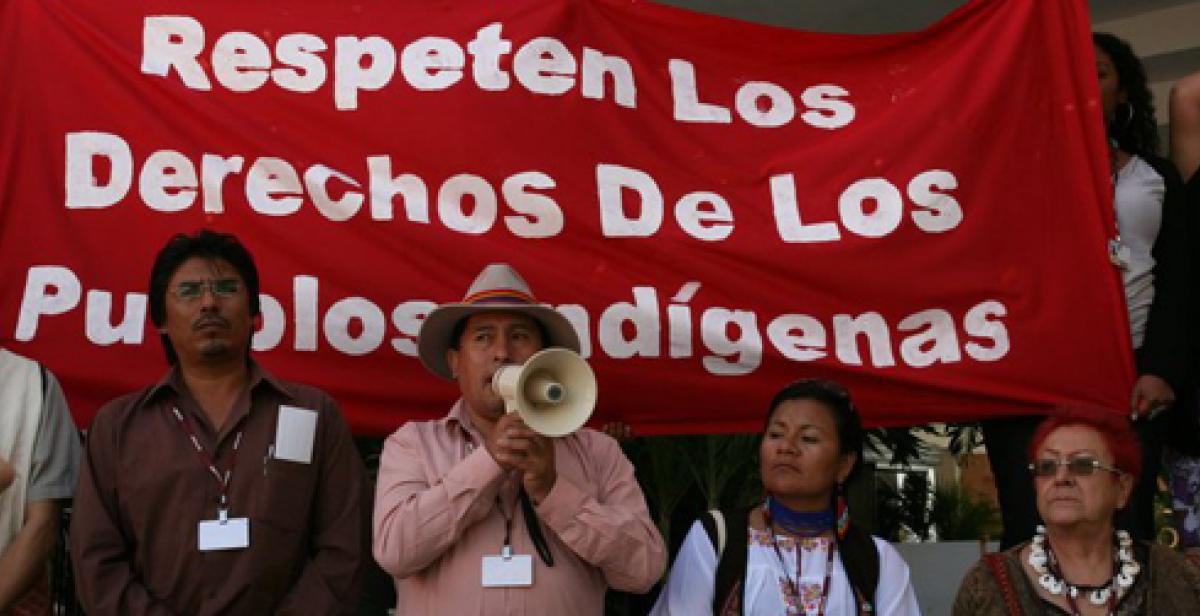Progressio environment policy officer, Petra Kjell, reflects on last week's UN climate summit in Cancún, Mexico.
It was certainly a change of scenery. From the cold and darkness of Copenhagen to the warm and sunny Mexican Riviera, delegates were mingling amongst air-conditioned buildings, many, apart from the poorest delegations, staying in all-inclusive beach resorts. While most of us struggled with long bus journeys to get around, some didn’t even have to leave the building because of the five star accommodation on site.
So, did the sun and sand make up for the disastrous lack of outcome last year? Well, the views are mixed. On a positive note, after much downplaying of the summit and some genuine struggles to get anywhere at all, the summit did deliver an agreement that reached near full consensus by the negotiating parties. The atmosphere in the final plenaries was electric, filled with positive energy as country after country praised the Mexican hosts and pledged their support for the draft texts, now known as the Cancún Agreements.
But there was an elephant in the room, most clearly vocalised by Bolivia, which refused to cave in to the pressure of joining the party. It repeatedly pointed to the lack of ambition in the documents that could set us on a path to unavoidable disaster, or ‘ecocide’, and therefore rejected any association with the ‘consensus.’
A Compromise
So, who is right? Well, both sides have a point. It is clear that the agreement was a compromise, and this was also stated by most countries pledging their support. But it is also clear that the agreement was reached in the spirit that something had to come out of Cancún, not the least after the UN process was declared next to dead after the significant failure in Copenhagen. Progress was urgently needed to revitalise the confidence in this process and any agreement could be considered a significant step forward.
But there is, of course, a risk in pushing something through that doesn’t reach the level of ambition so desperately needed, not the least considering the concerns of the world’s poorest people, many who are already feeling the impact of climate change. While the agreement includes some positive elements, Bolivia was right in that it is yet to recognise the full consequences of climate change and respond with sufficiently comprehensive and effective responses that also need to be legally binding. Our job is now to ensure that these weaknesses are fully addressed in the run up to the summit in Durban, South Africa, next year.
Good news
There was some good news, too! Progressio has for some time pushed for water issues to be recognised in the climate change negotiations (some of you will remember our Just Add Water campaign of last year). Finally our hard work, in collaboration with the Water and Climate Coalition, paid off! It was an ecstatic moment when countries finally raised this issue as an area of concern in the closing plenary of the body that provides scientific and technical advice to the UN climate convention. Six countries insisted that water should be discussed in the next meeting in June, with many more having confirmed their support behind the scenes. We will now continue to keep the pressure up to ensure this issue doesn’t fall off the agenda in the next six months.
For more on this exciting news click here. Read Progressio development worker Maggie Von Vogt’s blog from Cancún.
Photo: Campaigners at the UN climate summit (Petra Kjell/Progressio)



